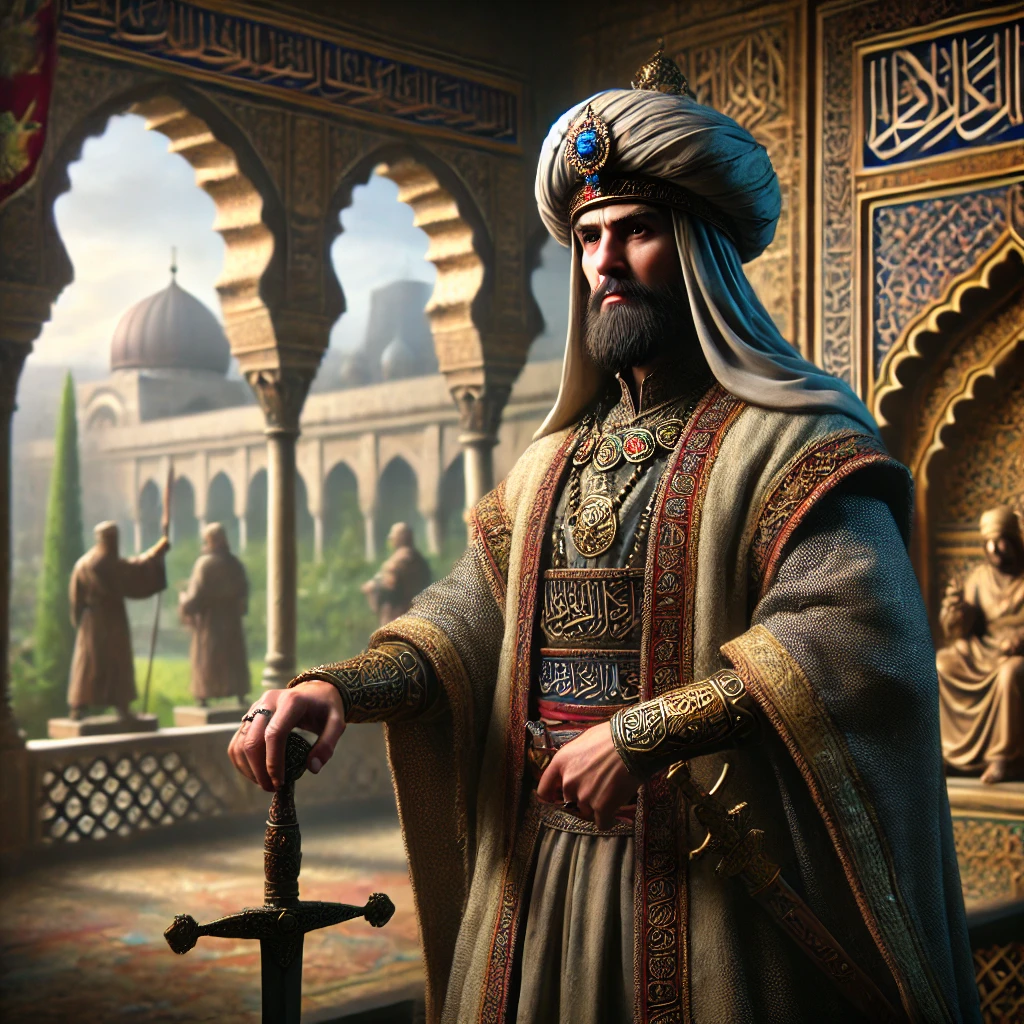
Full Name: Ṣalāḥ ad-Dīn Yūsuf ibn Ayyūb
Birth: 1137 / 1138, Tikrit, Mesopotamia (now Iraq)
Death: March 4, 1193, Damascus, Syria
Dynasty: Founded the Ayyubid Dynasty
Religion: Islam (Sunni)
Known for: Reconquering Jerusalem during the Crusades, establishing the Ayyubid dynasty, and being epitomes of chivalry and leadership.
Life and Background
Saladin was born in Tikrit to a Kurdish family. His father Ayyub, and uncle Shirkuh, were military leaders serving under Imad ad-Din Zengi and later Nur ad-Din, famed personalities involved in Islamic resistance to the Crusaders. The family went to Mosul and later Damascus when he was a child, giving him exposure to the greatest cultural and political centres of the Islamic world.
His education mainly centred on Islamic studies especially theology, jurisprudence and Quran that instilled in him a great sense of faith and discipline. Although born in a military family, first, Saladin preferred religious scholarship rather than swordplay. However the influence of uncle Shirkuh combined with the necessity to defend Muslim areas against Crusader onslaught encouraged him to choose a military career.
Rise to Power
Service under Nur ad Din:
Saladin began his military career under Shirkuh in Egypt. Egypt was then under control of the Fatimid Caliphate suffering from civil troubles and open to Crusader attacks. Saladin proved himself a loyal and able assistant in strategic victories which effectively strengthened Muslim resistance in the region.
Shirkuh died in the lands of Egypt in 1169, and Nur ad-Din appointed Saladin as his vizier. Saladin was born in the house of the Fatimid Caliphate but was secretly working to demolish the Fatimid power and affiliate Egypt to the Sunni Abbasid Caliphate. In 1171, he ended the Fatimid Caliphate and declared and pledged allegiance to the Abbasids and the supremacy of Sunni Islam over Egypt. This paved the way for the Ayyubid dynasty.
Unity of the Muslim World
After the death of Nur ad-Din in 1174, Saladin started putting his arms around Syria, Mesopotamia, and large parts of Arabia. This was to assert his power without attracting hostility from rival Muslim leaders, thereby combining military and diplomacy in his efforts to unify these territories. Under his leadership, disparate Muslim states formed a strong front to face Crusaders.
Military Achievements:
The Battle of Hattin (1187):
This battle marks the pinnacle of Saladin’s military success, during which he managed to convince the Crusaders to not have any access to water, and later surrounded their forces near the Sea of Galilee for an annihilating defeat, after which the way was paved for the liberation of Jerusalem from the Crusaders.
Recapture of Jerusalem (1187):
They took it back from the Crusaders for Saladin, after having lost it to them for eighty-eight years. He also allowed Christian inhabitants to leave the city without feeling the bitterness of the 1099 sack after paying a nominal ransom when he reclaimed it, unlike what the Crusaders did. It raised his reputation as a just and generous ruler.
The third Crusade (1189-1192):
Now Saladin faced the full power of kingdoms of Europe, including Richard the Lionheart. Some coastal settlements like Acre were regained by the Crusaders. Saladin, however, kept Jerusalem safe. Through a series of negotiations, he kept the city under Muslim control while providing Christian pilgrims access to it.
Governance and Leadership
Saladin encompassed much of a statesman statesmanship and military leader. His rule reflected the following:
Justice and Welfare: Saladin ensured efficiency in administration, economic stability, and well-being to the subjects. He also endorsed education, health care and religious edifices.
Death and Legacy
He died in 1193 in Damascus after a very short illness. His empire extended from Egypt through Syria and Mesopotamia to parts of Arabia. Yet he was so poor at the time of his death that his treasury was almost empty, for his nature was charitable. He was buried in a plain tomb at Damascus, which continues to be a place of reverence.
Chivalry and Diplomacy:
Saladin’s humane treatment of foes and honourable conduct during the Crusades earned him reverence, even from his enemies. Richard the Lionheart called him, somewhat euphemistically, a “great prince”.
Cultural Icon:
Saladin thus became acclaimed in Islamic history as the icon of unity, resistance, and equality. In the West, he became a legendary human figure embodying the best of the ideal noble and virtuous enemy.